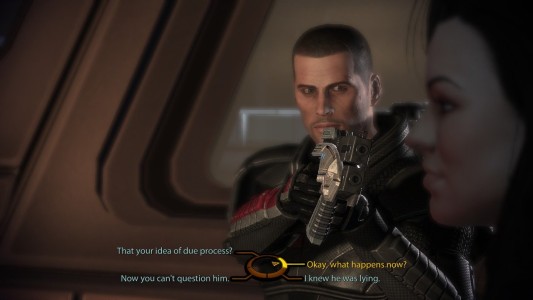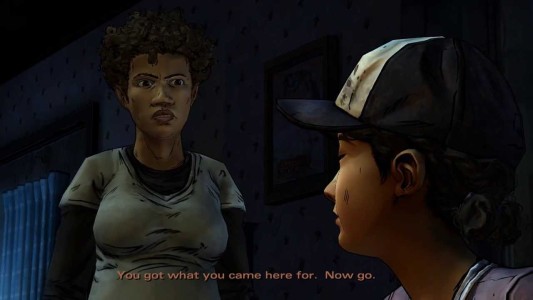After recently finishing season two of Telltale Games’ The Walking Dead, I have a bit of a bone to pick with the devs over at TtG. No Going Back, brought our kind and gentle Clementine through a ringer of tough decisions and horrifying sights. This is enough to get me mad at the writers of the game, but this is not my issue.
The impression we are given of games like this, even games like Mass Effect, is that each of our experiences will be unique. But, if at any point this illusion is broken, players are instantly angered, and feel cheated. We have all tried it before, selecting one or two different answers in different saves, or perhaps after dying, and seeing we get the same result, breaking immersion, this promise of the unique experience.
But in the defense of the devs, they cannot flesh out every single line of dialogue into a new event. Instead, they use anchor points within the narrative. For example, you must experience A so that B can happen, you can change the way you get to B, you can even change who accompanies you at experience B, but it must happen. So that annoying character, who you wish would die, simply can’t, no matter what you do, until they fulfill their purpose in the story.
This was my biggest problem with season two of Telltale Games’ The Walking Dead. An otherwise interesting narrative marred by an annoying character whom the story revolved around. It was like watching a wonderful movie, with a yapping chihuahua chained to your leg, being quiet every few minutes and then suddenly beginning to yap again, reminding you of it’s bothersome presence.
Trying to spoil as little as possible, the character I am referring to is Rebecca, if you are familiar with the show, she is basically the Lori of the group. She is rude and absolutely annoying half of the episode, and then the game forces you almost at gunpoint, to befriend her. This was a huge blow to my “unique” player experience. Forget seeing the proverbial man behind the curtain pulling the strings, the damn curtain was in flames at this point.
And herein lies my point, perhaps we need to rethink interactive storytelling. Rather than simply relying on these anchor points, these unchangeable parts of the story, we should find a way to make them more fluid. Rather than chaining us to characters and forced relationships simply for the plot’s sake. But that is for a much better writer than I to decide, I’m just glad to be away from Rebecca, don’t worry that doesn’t spoil anything, that was only unique to my playthrough.



